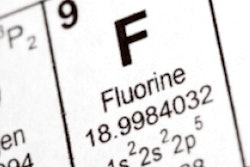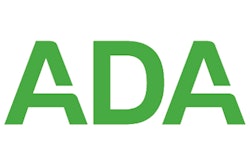
The ADA supports community fluoridation and believes it is a safe way to prevent caries, despite a recent draft monograph from the U.S. Department of Health and Human Services' National Toxicology Program that suggests fluoride is a cognitive neurodevelopmental hazard to humans.
The program conducted a systematic review to evaluate the evidence that exposure to fluoride could be associated with neurodevelopmental or cognitive effects. A committee assembled by the National Academies of Sciences, Engineering, and Medicine will review the monograph before a final version is published in 2020. The committee will critique the draft and determine whether it supports the National Toxicology Program's hazard conclusions for fluoride in children and adults.
The ADA sent a letter on November 19 to program officials, announcing its support for fluoridating public waters and questioning the validity and methodology of many of the studies included in the review. Similar letters from the American Academy of Pediatric Dentistry and the Association of State and Territorial Dental Directors also were sent that week.
"Our panel of experts concluded that the available literature is insufficient to establish causation between fluoride exposure as experienced in the United States and neurocognitive development," the ADA wrote.
The association requested that officials revisit its rating that fluoride is "presumed to be a cognitive neurodevelopmental hazard to humans." Furthermore, the ADA criticized the officials' for including studies that used higher-level exposures of above 1.5 parts per million in its draft monograph.
"It is also critical to the public's health that you include some type of modifier to distinguish the health benefits of optimally fluoridated drinking water, currently recommended at 0.7 parts per million (ppm), from the higher level exposures the monograph addresses," the ADA wrote.



















